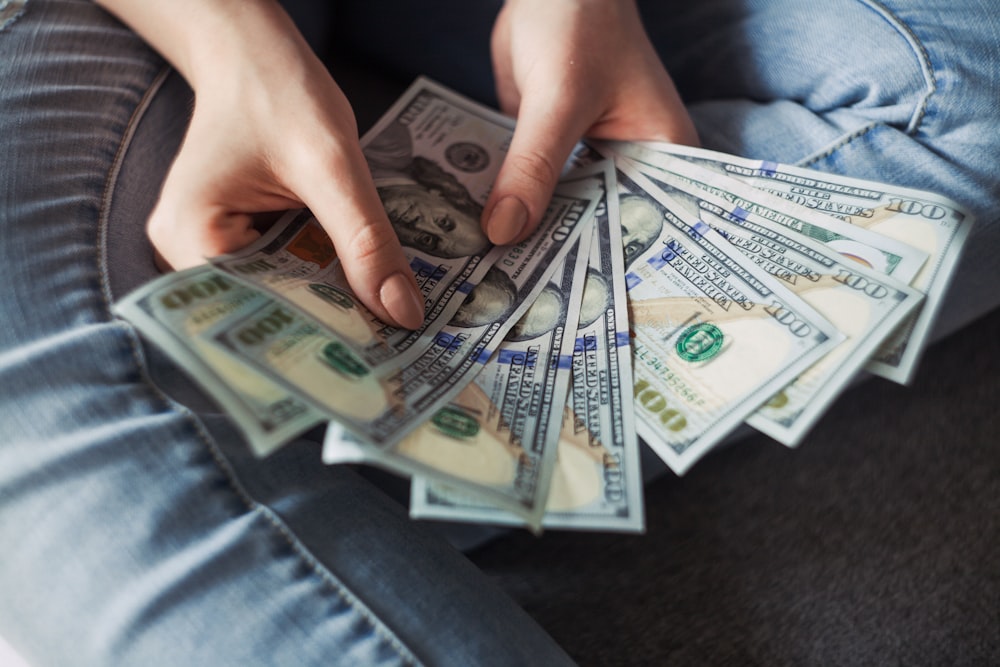HSBC’s $3b Share Buyback: What It Means For Investors After Q3 Earnings Beat
Image Source: Unsplash
- HSBC’s pre-tax profit hit $8.5 billion.
- Revenue also rose by 5% to $17 billion.
- This buyback marks the third $3 billion repurchase this year.
HSBC, Europe’s largest bank, announced a $3 billion share buyback following an impressive third-quarter earnings report that exceeded analyst forecasts.
This announcement, alongside a solid revenue increase, emphasizes HSBC’s robust financial standing and strategic focus on enhancing shareholder value.
HSBC’s Q3 earnings
HSBC’s pre-tax profit hit $8.5 billion, surpassing the LSEG SmartEstimate of $8.05 billion and reflecting a 10% year-over-year increase from $7.71 billion.
Revenue also rose by 5% to $17 billion, up from last year’s $16.2 billion and again beating estimates.
The bank’s strong performance is largely credited to growth in its wealth and personal banking divisions, which have been key areas of focus as HSBC restructures its global operations.
This buyback marks the third $3 billion repurchase this year, bringing HSBC’s total share buybacks for 2024 to a notable $9 billion.
Coupled with a $0.1 per share dividend announcement, HSBC’s commitment to rewarding shareholders is evident.
For investors, the buyback and dividend underscore HSBC’s confidence in its financial health and future profitability.
HSBC’s plans to reshape organizational structure
Alongside the financial results, HSBC revealed plans to reshape its organizational structure into four primary units: Hong Kong, UK, international wealth and premier banking, and corporate and institutional banking.
This change, set to go into effect in January, aligns with HSBC’s strategy to streamline its operations and sharpen its focus on key regions and services.
The restructuring also comes with HSBC’s commitment to reducing redundancy, enhancing decision-making processes, and creating a “more dynamic and agile organization,” according to Georges Elhedery, HSBC’s CEO.
This strategic overhaul is part of HSBC’s ongoing global realignment to capitalize on its strongest markets and service offerings, which will enable it to allocate resources more efficiently.
The restructuring will also bring additional expertise to critical areas, evidenced by the recent appointment of its first female finance chief, signaling a commitment to both operational and leadership transformation.
What does the $3B buyback mean for investors?
Share buybacks are generally a positive sign for investors, as they can increase the value of remaining shares by reducing supply.
HSBC’s decision to buy back $3 billion worth of shares reinforces its commitment to shareholders, signaling confidence in the bank’s profitability and growth trajectory.
The buyback comes at a time when HSBC has been generating strong cash flows and demonstrating resilience in challenging economic conditions, making it a promising move to support share prices.
The buyback also serves as a strategic signal that HSBC sees value in its stock, potentially boosting investor confidence and making HSBC shares more attractive to new and existing investors.
In combination with the $0.1 per share interim dividend, HSBC offers investors a balanced approach to wealth generation, blending capital appreciation through share repurchases with income generation through dividends.
HSBC’s strong Q3 performance, robust buyback plan, and strategic restructuring position it well for the future, even as global economic uncertainty looms.
Its focus on high-growth areas like wealth and personal banking, along with its emphasis on operational efficiency, could help HSBC weather macroeconomic challenges while delivering value to shareholders.
With its expansion and the new operational structure set to take effect next year, HSBC is signaling its commitment to adaptability, efficiency, and long-term shareholder returns, all of which make it a compelling choice for investors.
For those considering HSBC in their portfolios, the bank’s focus on core markets and its proactive stance in streamlining operations could make it a solid investment as it seeks to continue outperforming and capitalizing on growth opportunities.
More By This Author:
Analysis: Why Oil Prices Are Likely To Stay Low After Israel’s Limited StrikeEthereum Price Prediction: Risky Pattern Points To A Breakdown
Is The Coinbase Stock A Buy Or A Sell Ahead Of Its Q3 Earnings?
Disclosure: Invezz is a place where people can find reliable, unbiased information about finance, trading, and investing – but we do not offer financial advice and users should always ...
more



